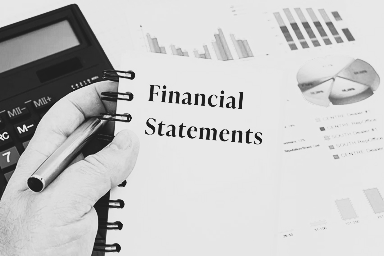When you are the owner of a small business, there are times when the scale of bigger companies can overwhelm you. At these times, you may wonder what you have that will make potential customers pick your brand over another. This particular factor is a business differentiator, and it helps consumers in the market identify you and set you apart from other brands.
Differentiating your company from the rest is an integral part in developing a brand, and it’s become even more difficult in recent years since it’s not merely enough to be just better than others; you need to be different. You may not have realized it yet, but being a small business is a differentiator on its own, you need to leverage it and market it enough. Here’s how you can identify your small business’ differentiators.
Analyze Your Competition
Finding your differentiator starts by learning what makes your competitors different. You need to maintain a neutral position and evaluate your competitor to know what their strengths and weaknesses are. What do they offer? What do they do better than you? How do they treat their customers?
Once you answer these questions, you discover their weak and strong points, as well as your own. At this point, you can decide whether you want to change the direction of your business to make it better than your competitors or market an aspect of your brand that’s already there.
Be Familiar with the Customer Experience
A benefit of being a small business owner is personally having experienced the life of an average consumer. By knowing the shortcomings of a large-scale company customer experience, you know what to develop in your own company. However, when working on differentiators, it’s time to start by scratch so you should map the various aspects of being a customer. What do they value? What dissuades them from buying?
You need to work on ways to build a consumer’s awareness of a need that your company can fulfill. It’s only after a consumer realizes that they need something that they will look towards brands that can provide them with a solution. You need to assess how your target demographic makes buying decisions, and whether your brand aligns with that thought process or not.
Another factor you should consider is how your customer will use your product and whether they will require any help with it after their purchase. Look towards your competitors and see what they offer, and see what you can provide when compared to them.
Assess Whether You Meet Customer Expectations
Once you’ve mapped out different points in a customer’s overall experience with your brand, you need to assess whether you meet expectations at each point. For instance, the first time a customer interacts with your brand, they expect a friendly approach that tries to understand their problem. Now you need to know if you come for your customer’s wallet at every encounter, or if there’s an empathetic side to you.
If you step into their shoes and see things from their point of view, you can ask yourself ‘do I want to be sold a product this way?’, ‘does this item have everything I need?’ and ‘has the brand tried to understand me and my problem?’ You need to learn whether your product motivates them to buy it.
The wrong approach is to focus solely on your product because that’s not what customers emphasize on when buying a product. The best way is to address different aspects of the customer experience and develop all of them.
Know Your Strengths
The first and foremost strength of being a small business is giving customers the attention they need. Since you’re not managing branches everywhere, you can afford to look after a minimal customer base.
Other than that, each business has its strengths when compared to other brands. It could be your amazing marketing, your customer loyalty programs, or your approach to customer service. Also, a small business operates on values, so they understand the needs and requirements of the average person.
Get Involved in the Community
The community you operate in should be your focus when expanding your reach. By making an impact on your community, your brand automatically earns a reputation among the other brands in the area. The people in your district will be in favor of supporting your brand since it will have a positive influence on their community.
The Importance of Having Differentiators
It’s true that ever brand needs differentiators that give them a competitive edge for business rivals, but your brand needs it more as a small business. That’s because large companies can already offer better prices due to cheaper manufacturing practices and access to raw materials at lower costs.
Hence, having a fixed market differentiator will help consumers pick your brand despite the difference between what you and larger brands can offer. However, having a differentiator isn’t only necessary for setting your brand apart from the rest. By knowing what you can do better than other companies can, you’ll have a clear view of what you should focus on when planning a marketing campaign.
A well-planned and targeted marketing effort will help you retain customers and increase your rates of promotion among people outside your community. Without a strong differentiator, you won’t be able to compete with others head-on.
At the same time, you need to uphold the values of honesty and transparency by refraining from overloading your brand profile. By attesting to being better than competitors at ‘everything,’ you risk losing precious customers. That’s why; you need to test all of your differentiators to see if they’re true, provable and relevant.
Only market things about your brands that you believe to be true, and to gain the audience’s trust, you have to prove it; whether through ‘look inside our workshop’ schemes or quality tests. Lastly, your differentiators need to be relevant. Customers won’t consider an aspect of your brand that they don’t care about or if it doesn’t benefit them. To conclude, you need to reflect upon your band’s personality and find something about your small business that differentiates it from the rest.
Who we are: Funded.com is a platform that is A+ BBB rated over 10+ years. Access our network of Investors, get instantly matched with a Lender, or get a business plan by visiting us Funded.com
You can review our featured partners to help your success with your business or project.
















